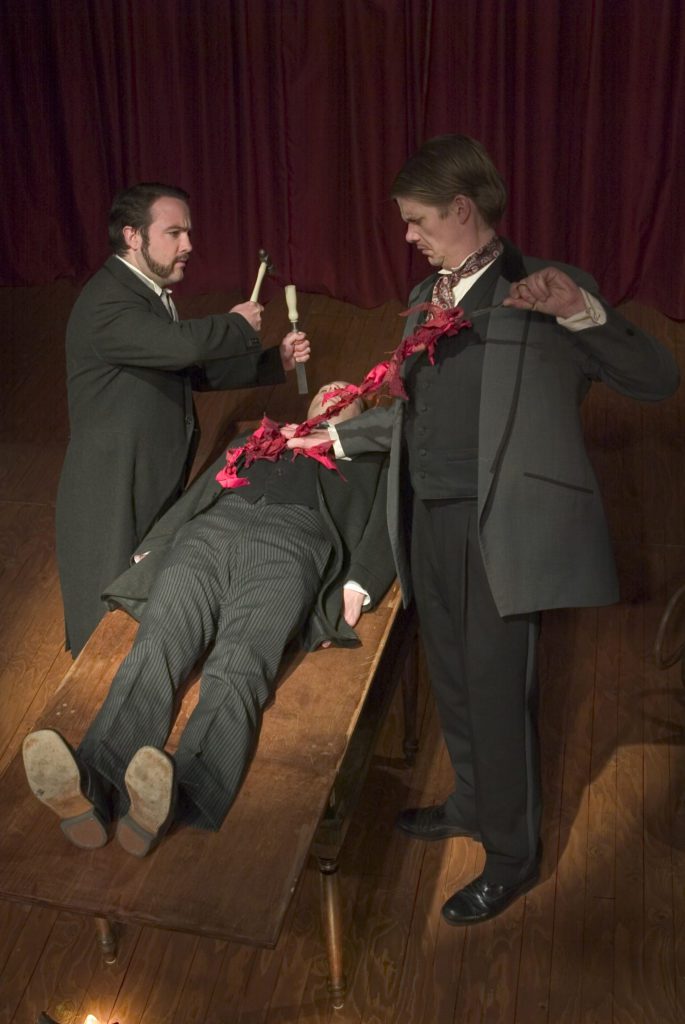Adorned in morning coats and black crepe, framed by red velvet curtains, their pale faces illuminated by the footlights, members of Denver’s amazing Buntport Theater Company solemnly pass through their mirthfully macabre piece of Grand Guignol, A Synopsis of Butchery.
How do they do it? This collective of seven began working together in 1998 and has created 18 shows to date. Their skills encompass all aspects of production, from design and tech to script and direction. The result is a body of work that’s remarkably diverse, save perhaps for a thread of melancholic whimsy.
A Synopsis of Butchery is ostensibly a meditation on untimely death, injustice, and the paralyzing agonies of grief. Surely not subjects to wring laughs from, yet Buntport does so by piercing the conceits of Victorian theatre, the self-righteousness of 19th-century reformers, and the suffocation of mother love.
The company’s capacious warehouse space has been cut down into a small proscenium, with a raked stage and a back wall of scrims and backdrops painted in wan period style. It resembles nothing so much as a torch-lit carnival sideshow. The gruesome tale that unfolds is part diatribe, part shocker — but ultimately a portrait of a psyche shattered by reality’s vicissitudes.
At the center of the play is Eleanor Bishop, played by the brilliant Erin Rollman. She is best known for her comic turns not because she is inherently funny, but because she invests herself so thoroughly in her characters that we can perceive their sweet foolishness from a mile away.
As Bishop, Rollman inveighs against the late-19th-century medical and legal professions with regard to the death of her only and overly beloved son, a fictional mentalist named Washington Irving Bishop (Evan Weissman). Prone to catalepsy, her son, she claims, was killed by a premature autopsy despite a note in his breast pocket asserting, “I am not dead, but in a state that defies human explanation.”
Grief-stricken, she harangues the audience with her diatribe, aided by other members of the troupe (Brian Colonna, Erik Edborg, and Weissman, doing double duty) and by backstage magic provided by Matt Petraglia and Samantha Schmitz (there are trapdoors, a coffin frame that rises around her son’s body, and an eerie Victrola-driven soundtrack).
Rollman strikes any number of tragic and extravagant poses; her research into the acting style of the era is impeccable. As the show progresses, it becomes more and more apparent that Bishop is lavishly living a kind of surrogate martyrdom: She demands meaning in (and income from) her son’s demise. The support of the other characters begins to break down, and in the end she takes her son’s place on the slab. What was polemic becomes pathos.
After 90 unrelenting minutes, we are released. We have laughed and we have sat agape. Like many of Buntport’s creations, the show challenges as much as it entertains. For those looking for laughs or pause, A Synopsis of Butchery is another unforgettable accomplishment by the company.
-Brad Weisman, May 09, 2006, www.backstage.com
